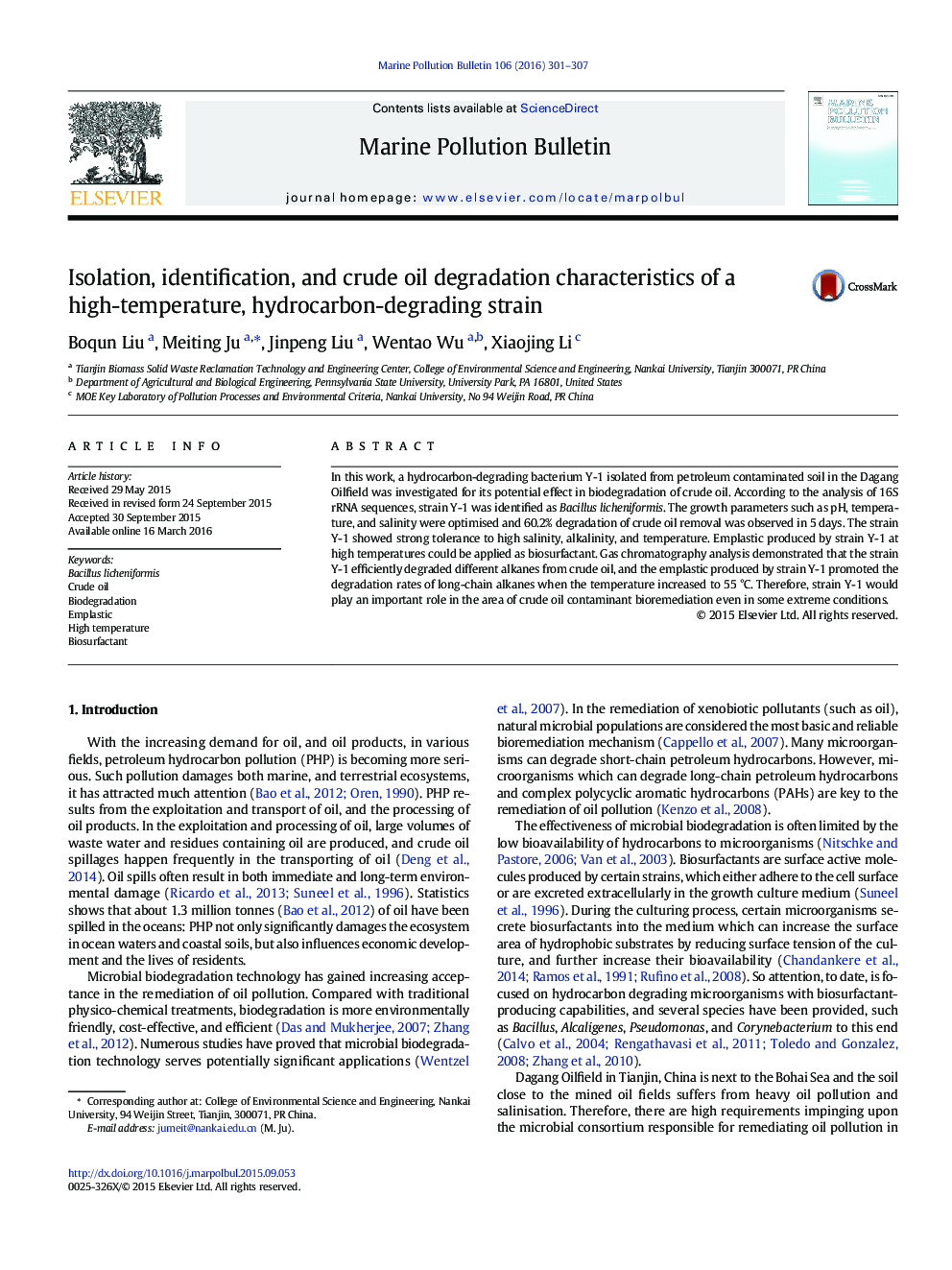| Article ID | Journal | Published Year | Pages | File Type |
|---|---|---|---|---|
| 4476489 | Marine Pollution Bulletin | 2016 | 7 Pages |
•A bacillus licheniformis strain Y-1 was isolated, and the crude oil degradation rate of 60.2% was got in only 5 days.•Strain Y-1 showed strong tolerance to high salinity, alkalinity, and temperature.•Degradation of both short-chain alkanes and long-chain alkanes were obvious.•Emplastic produced by strain Y-1 at high temperature intensified the emulsifying effect.
In this work, a hydrocarbon-degrading bacterium Y-1 isolated from petroleum contaminated soil in the Dagang Oilfield was investigated for its potential effect in biodegradation of crude oil. According to the analysis of 16S rRNA sequences, strain Y-1 was identified as Bacillus licheniformis. The growth parameters such as pH, temperature, and salinity were optimised and 60.2% degradation of crude oil removal was observed in 5 days. The strain Y-1 showed strong tolerance to high salinity, alkalinity, and temperature. Emplastic produced by strain Y-1 at high temperatures could be applied as biosurfactant. Gas chromatography analysis demonstrated that the strain Y-1 efficiently degraded different alkanes from crude oil, and the emplastic produced by strain Y-1 promoted the degradation rates of long-chain alkanes when the temperature increased to 55 °C. Therefore, strain Y-1 would play an important role in the area of crude oil contaminant bioremediation even in some extreme conditions.
